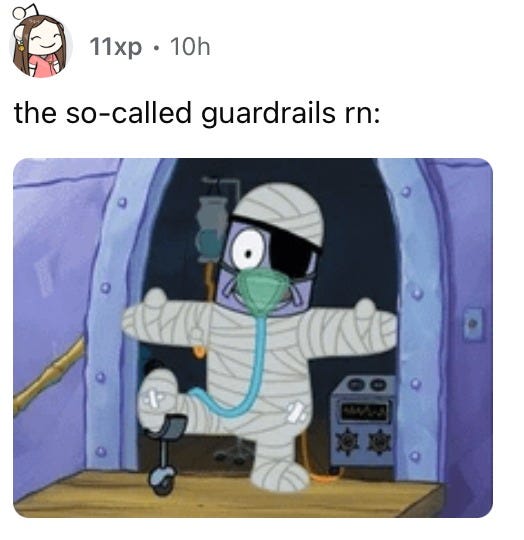Rep. Kim Schrier: "I do think all of us, no matter who we voted for, should be worried right now"
"Did you read about it in Project 2025? Then I would say there is danger."
Note to readers: I’m working on an accounting of what specific actions taken by the new Trump Administration in January 2025 were explicitly mentioned by Project 2025, as well as piece on the actions that very much aren’t. I will continue to offer contextual pieces, as I think they are just as, or more, critical to understanding how our federal government is being rapidly reshaped.
Rep. Kim Schrier (WA-08) gave her first town hall of the new Congress Tuesday night at the Issaquah School District Administration Building. She spoke to a polite but very attentive large crowd. The event had an odd feel: quotidian suburbia with an ominous undercurrent of acute anxiety.
Washington State’s 8th Congressional district is considered “purple”, but it is indicative of the overall shift towards “blue” in the state. It elected a Republican representative to Congress until 2018, when Dr. Kim Schrier, a Democrat and a pediatrician, took over the seat. In 2024, the district supported Harris over Trump for president, 51%-45%. Washington State, like its Pacific Coast brethren of Oregon and California, is solidly blue overall, but with very conservative outposts throughout its most rural areas—including in WA-08.
There has been a lot of media consternation about what Democrats are doing in the face of the onslaught/avalanche/barrage/insert-your-favorite-cliche spewing from the White House. Based on this town hall discussion in this characteristically well-behaved Seattle suburb, the current state appears to be one of deep concern but not yet action, and perhaps some initial shock from constituents and politicians alike. Rep. Schrier flipped between statements like the gloomy punchline of her opener, “I do think all of us, no matter who we voted for, should be worried right now” to the more everyday, purple-politician-speak of “There are places where I will find common ground with this president, and with Republicans in Congress, and particularly with doctors in Congress, and I will work with them in good faith when it benefits this district.”
While most of the questions asked were directly related to the events of the last week or to broader issues of national unrest, others were about more evergreen issues like federal efforts to address the homeless/housing crisis or to restrict pharmaceutical advertising. The new Trump-era cast a pall over it all, though. It was jarring to hear a representative assure the $35 insulin for Medicare patients in the context of Trump by saying “That is law. He can’t just overturn that” followed by nervous audience giggles and “…we don’t think.”
Several issues arose that are particularly important to Washington state. Perhaps the most startling was one brought up by Rep. Schrier herself, unprompted, “The release of the pardoning of January 6th violent criminals, that also matters here, to the district, because these are people who come home, here. And they are not just going to sit back, so I would keep your eye on that because I don’t think we’ve seen the last of them. I think they’ve been emboldened.”
Several of the January 6th violent offenders pardoned or commuted by Donald Trump live in Washington state. Despite the state’s earned reputation for progressive activism, there is also a very long history of right-wing extremism. Several of the offenders were from (or have strong ties to) Washington state, including Ethan Nordean of Auburn, WA, a member of the Proud Boys described as “the undisputed leader on the ground on Jan. 6”. Nordean’s sentence was commuted.
Rep. Schrier also expressed concern that this Administration will retaliate against “blue” states by not providing disaster relief funding. In November, 2024, a major bomb cyclone struck the Puget Sound area, leaving several areas from Puget Sound through the Cascade foothills heavily damaged and without power for days. Washington politicians asked the Biden Administration to declare the event a major disaster and thus make the region eligible for federal relief funding, but this was not acted upon before Biden left office. Rep. Schrier is now unclear whether that funding will be allowed by the Trump Administration.
When asked about the potential for increased private use of federal lands under the new Administration, of which WA state has many, Rep. Schrier responded, “Did you read about it in Project 2025? Then I would say there is danger.” (Project 2025 calls for increasing leases on federal land to ranchers and energy and mineral prospectors. The author of the Project 2025 chapter on the Interior Department, William Perry Pendley, has opined separately that federal lands should be sold to private developers.)
What does Rep. Schrier see as her role in opposing this Administration? She said she learned from the last Trump Administration that “when you get outraged about everything, it’s kind of like you get outraged about nothing.” She instead proffers her leadership where she has “the most authority”; e.g., on medical issues. She also offers her historical bipartisanship, including sponsoring successful bipartisan bills that allowed her to build good working relationships with “pragmatic centrists” like herself, including Republicans. She believes that Congress can still function, and she reminded the audience that most bills are in fact passed with large majorities under the suspension of the rules. That said, she also pledged to “fight when things are bad for this district, for women, for children, for the state, for the country, or for the world.”
Her recommendation for what we can do in response to the executive orders? “Call the White House.”




Excellent report about an important meeting. You are a talented reporter. I hope Rep Schrier is right about insulin price being law that Donnie cant change on his own. Lots more issues we need to be concerned about. I try not to be scared but am disgusted for sure with the past 10 days of chaos.